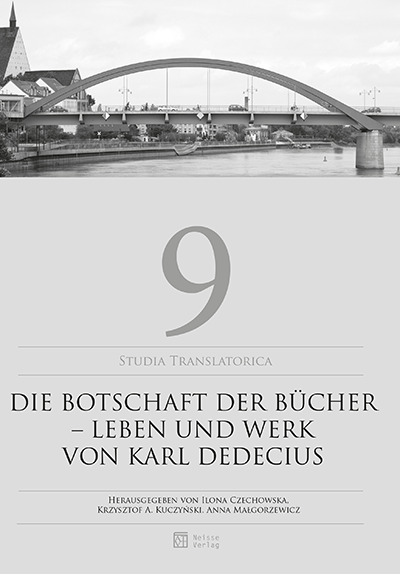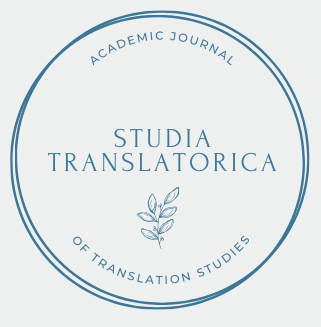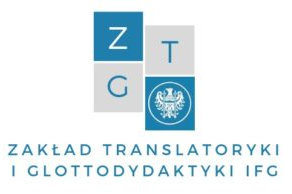
Studia Translatorica
Heft 9 (2018): Die Botschaft der Bücher – Leben und Werk von Karl Dedecius
Herausgegeben von: Ilona Czechowska, Krzysztof A. Kuczyński, Anna Małgorzewicz
Der Nachlass von Karl Dedecius: Erschließung und Präsentation der Projekte. Was war, was ist, was wird kommen? / Literary legacy of Karl Dedecius. Indexing and presentation of projects. The past, the state of the art, and the future
DOI: 10.23817/strans.9-1 (online zugänglich: 2020-01-15)
Schlüsselwörter: literary legacy, indexing, Karl Dedecius German-Polish reconciliation, Karl Dedecius Archive, Karl Dedecius Literature Archive Foundation
This contribution describes the historical development of the collections management con-cerning the legacy of Karl Dedecius who translated the works of important Polish authors into the German language. His engagement and activities in the area of German-Polish rec-onciliation can be studied in Slubice at the Collegium Polonicum, where the documents and media relating to Karl Dedecius have been available for research since 2001. In 2013, the Karl Dedecius Literature Archive Foundation was created. It started with cross-border projects, workshops and cultural events. The positive feedback from the participants, researchers and students demonstrates the early success of the new foundation that is now improving its in-ternal organisation in cooperation with its Polish partners.
Karl Dedecius: Der Schöngeist und die Politik. Deutsch-polnische Literaturvermittlung in einem zerklüfteten Gelände: BRD, DDR, VRP / Karl Dedecius: The aesthete and politics. Mediating literature in a fissured landscape: FRG, GDR, Polish People’s Republic
DOI: 10.23817/strans.9-2 (online zugänglich: 2020-01-08)
Schlüsselwörter: mediation, politics, literature, aesthetics
Karl Dedecius committed his talent and passion to literary translation. During the “Cold War”, he pursued the “harmonising concept” of mediation between languages, cultures, and people. Frictions between the politics and the aesthetics were bound to appear. A balancing act was necessary. In my article, I would like to focus on those traces with the help of translator’s memories as a crucial source.
Dedecius‘ Anfänge in der Bundesrepublik / Dedecius’s beginnings in West Germany
DOI: 10.23817/strans.9-3 (online zugänglich: 2020-01-15)
Schlüsselwörter: Klaus Mehnert, Kazimierz Wyka, Tauwetter, Lektion der Stille, Horst Bienek, Herbert G. Göpfert, Adam Ważyk
The author uses archival data to showcase Dedecius’s efforts after his resettlement to the FRG in 1952 to prove his qualifications as an expert in Soviet drama and skilled translator of Rus-sian lyric literature through his publications. He contacted Eastern Europe specialist, Klaus Mehnert. Serendipity led him to become a translator of Polish literature. In the second part of his study, the author describes on the basis of Dedecius’s correspondence with Herbert G. Göpfert and Kazimierz Wyka the circumstances of publication of the anthology of Polish poetry Lessons in silence [Germ. Lektion der Stille].
Karl Dedecius oder Die Botschaft der Bücher / Karl Dedecius and the political and cultural mission of his works
DOI: 10.23817/strans.9-4 (online zugänglich: 2020-01-15)
Schlüsselwörter: Polish-German relations, Polish literature in Germany, the art of translation, Karl Dedecius
Born in Łódź, Karl Dedecius (1921–2016) is deservedly considered the most eminent transla-tor of Polish literature in Germany. He is also regarded as the “builder of bridges” between these two nations. Dedecius is respected both for the great number of his translations (the works by 300 writers) and for his translation skill and talent admired by the readers of his texts. He published about 200 books – translations of Polish poetry and prose as well as essays. His Deutsches Polen – Institut in Darmstadt should be enumerated among his organisational achievements. Several multi-volume series of Polish literature deserve special appreciation. For his work, Dedecius was awarded with many awards and distinctions.
Der Übersetzer und ‚sein’ Dichter? Anmerkungen zum imperialen Übersetzen am Beispiel von Zbigniew Herberts Herr Cogito / Zbigniew Herbert’s “Pan Cogito” in German. Remarks on imperial translation
DOI: 10.23817/strans.9-5 (online zugänglich: 2020-01-15)
Schlüsselwörter: Karl Dedecius, Zbigniew Herbert, literary translation, Polish poetry
This short analysis of Karl Dedecius’s work, especially of his translations, and German-language edition of Zbigniew Herbert’s Cogito-poems focuses on aspects of literary translation that might be described as imperial – like the claim of totality and monumentality (manifesting itself e.g. in multi-volume anthologies or in the founding of institutions) or a “freehand” approach to the source-language material relying on the translator’s interpretation and its intended effects in the target culture. The correspondence between Dedecius und Herbert shows that such translational attitude from the poet’s point of view does not necessarily have to be disadvantageous, but under certain circumstances can lead to tensions between the poet and the translator.
Die Botschaft der Bücher und die Aufgabe der Bibliotheken / The message of the books and the task of the libraries
DOI: 10.23817/strans.9-6 (online zugänglich: 2020-01-15)
Schlüsselwörter: Karl Dedecius, translator, library, bibliophile
The name of Karl Dedecius is very closely linked to the term “library.” His canon of fifty outstanding works of Polish literature in German translation was entitled Polish Library, his anthology of Polish literature from nine centuries published in 2011 was called My Polish Library and it was undoubtedly due to his work and his commitment that the German Institute of Poland can today lay claim to being one of the largest specialised libraries in the German-speaking countries dedicated to Poland and Polish culture. Based on written statements by Karl Dedecius himself as well as additional remarks by Andreas Lawaty, one of his closest collaborators at the German Institute of Poland, the paper describes the relationship of the renowned translator and editor with books and libraries as well as with the book trade and publishing companies. It furthermore touches upon the aesthetics of print publications as well as the bibliophilic love of books. It becomes clear that Dedecius was not an ardent library user in the classic meaning of the word, but that he was more than aware of the importance of libraries open to the public for the dissemination of knowledge about Polish culture. In the second part of the paper, a selection of the most important general and specialised libraries in Germany with holdings related to Poland is presented. In this context, the paper discusses also the challenges that the libraries have to face if they wish to offer their users comprehensive information about Polish history and culture.
Briefe bewahren. Tadeusz Różewicz und Karl Dedecius im Briefwechsel / Save the letters. The correspondence between Tadeusz Różewicz and Karl Dedecius
DOI: 10.23817/strans.9-7 (online zugänglich: 2020-01-15)
Schlüsselwörter: Polish literature, poetry, translation studies, biography, Polish-German relationship, editorial science, correspondence, literary reception, intellectual friendship
For good reasons one can speak of a special relationship between one of the most prominent poets and playwrights of the post-WWII Poland, Tadeusz Różewicz (1921–2014), and one of the most prominent translators of Polish poetry into German, Karl Dedecius (1921–2016). Both were born in Poland in the same year and not far from each other. The first was Polish partisan during the German occupation, the latter, of German origin, served as a soldier in the Wehrmacht. They were aware of the specific and tragic bonds in the history of their nations and in their own biographies since they exchanged letters with each other for over fifty years. This correspondence in the Polish language is now edited in two volumes (Listy 1961–2013, ed. by Andreas Lawaty, and Marek Zybura. Kraków: Universitas 2017). On the basis of this correspondence, the paper analyses the special relationship between the Author and his Translator, between two men of letters, between two representatives of conflicted nations seeking reconciliation under difficult political circumstances of the Cold War and thereafter. But it also concerns the personality, emotionality, the motivations, and aesthetic views of both men as they become apparent in the letters they write to each other, with different intensity but continuously, not without tensions but with steady sympathy and respect for each other. Moreover, the paper emphasises the character of the correspondence as a repository of information about literary life and cultural relationships between Poland and Germany.
Światy poetyckie kobiet w przekładach Karla Dedeciusa / Poetic worlds of women in Karl Dedecius’s translations
DOI: 10.23817/strans.9-8 (online zugänglich: 2020-01-15)
Schlüsselwörter: artistic translation, translation strategies, Polish women’s poetry, love poetry, Polish literature in Germany
The article ”Poetic worlds of women in Karl Dedecius’s translations” directs the readers’ attention to the translation theory and practice of the German translator. It also presents the criteria for the selection of Polish female poets’ works that were translated into German. The way in which Dedecius perceives women’s poetic worlds proves his in-depth reading of translated texts and knowledge of the Polish language. Starting with the discussion of over a dozen of anthologies of Polish poetry published by Dedecius, the author of the paper situates them in the landscape of the reception of Polish literature in Germany and reflects on them. The analysis of the selected poems by Kazimiera Iłłakowiczówna, Maria Jasnorzewska-Pawlikowska, Wisława Szymborska, and Ewa Lipska as well as the comparison of the original poems with their translation allow to define features of Dedecius’s translation method, his attitude to the artistic means, to language, form, rhythm and motifs of Polish women’s poetry.
Karl Dedecius: große Übersetzung der kleinen literarischen Form / Karl Dedecius: Great translation of a small literary form
DOI: 10.23817/strans.9-9 (online zugänglich: 2020-01-15)
Schlüsselwörter: aphorism, equivalence, presupposition, translation of aphorisms, obligatory transposition, facultative transposition
The paper outlines the problem of the Karl Dedecius’s German translation of some aphorisms written by Wiesław Brudziński. As a result of the differences between Polish and German, the translator often changes the form of the original aphorisms. Such changes are usually defined as obligatory transposition. Karl Dedecius does not translate literally and he often employs his own interpretations to reach the effect of conciseness of the text in the target language. Many of the modifications are the effect of conscious decisions taken by the translator. Dedecius’s creative translation is based on facultative transposition. Such a translation conveys more true sense of the original text than a literal one.
„Liryczny triumwirat” – Karla Dedeciusa przekłady liryki rosyjskiej / The lyrical triumvirate – Karl Dedecius’s translation of Russian poetry
DOI: 10.23817/strans.9-10 (online zugänglich: 2020-01-15)
Schlüsselwörter: translation, translation of poetry, metaphor, culture-crossing, lyric poetry, Russian poetry, Dedecius
In Karl Dedecius’s activity, translations of Mikhail Lermontov’s poetry take a special place. Dedecius translates Lermontov’s poetry in extraordinary circumstances – during the Soviet war imprisonment. Lermontov’s poems meant a lot to the German translator: they were not only consolation in the particularly hard and almost hopeless situation but also a unique “psy-chosomatic” therapy. The empathy and strong identification with the fate of Russian poet are also apparent in the German translations of Lermontov’s poetry. Even if losses happen, they are replaced successfully by an artistic and interpretive gain. This proves – in the case of Karl Dedecius – that the literary and semantic structure of a well translated poem cannot fail due to small divergences and modifications of particular metaphors. Translation of poems of Russian poet Anna Akhmatova is a separate field in Dedecius’s trans-lation creativity. In the translation process of Akhmatova’s poetry a question arises to what extent the emotionality and reflexivity of Russian verses can be translated. The new translation model conforms completely to the core area of the semantics and stylistics of the literary work and to the reconstruction of the creative process of the author of the original. This model has been de-fined as the diegetic translation strategy. Works of Russian and Soviet poet Vladimir Mayakovski are regarded as an exceptional translation work of Karl Dedecius. The detailed analysis of several Dedecius’s translations demonstrates transgression as the core element of the translation strategy of his poetry. This artistic vision of the present time is used effectively and constitutes an intrinsic part of the translation in order to influence the target-language recipients familiar with Russian poems and to arouse their interest in the modern poetry.
Dedecius’ individuelle Translationstheorie – ein Versuch ihrer Rekonstruktion vor dem Hintergrund der anthropozentrischen Translatorik / Dedecius’s individual translation theory – an attempt of its reconstruction against the background of anthropocentric translation studies
DOI: 10.23817/strans.9-11 (online zugänglich: 2020-01-15)
Schlüsselwörter: Dedecius’s individual translation theory, Różewicz, Lec, anthropocentric translation studies, translation model, translation strategy, translation of aphorisms
The paper aims at reconstructing Karl Dedecius’s individual translation theory on the basis of theoretical papers written by the translator himself, on the basis of his comments on his own translations, as well as on the basis of analyses of some of his translations of Polish literature. At the same time, the tendencies and peculiarities of the master’s translation art shall be studied. The translator’s canon is interpreted from the point of view of anthropocentric translation paradigms. First, the conducted study shows that Dedecius’s works are in harmony with his theories. Second, it proves the accuracy of Dedecius’s translation-relevant assumptions and beliefs in the light of anthropocentric translation studies. Moreover, it demonstrates the relevance of anthropocentric translation paradigms for the descriptive modelling of specific, complex translation reality.
Auf den Spuren des Übersetzungsprozesses in der Analyse der Übersetzerkladden und -notizen von Karl Dedecius / On the trail of the translation process in the analysis of Karl Dedecius’s notes
DOI: 10.23817/strans.9-12 (online zugänglich: 2020-01-15)
Schlüsselwörter: translation process, sign, approximation, equivalence, implication, anticipation, lacuna
This article investigates the subject “On the trail of the translation process in the analysis of Karl Dedecius’s notes” and deals with the problems of research on the translation process which can be observed in the rough copies of the famous translator of the Polish literature into German, Karl Dedecius. The article focuses on Dedecius’s comments on the translation activ-ity from the point of view of the practicing translator and their verification in regard to the aspects and attitudes of Cognitive Linguistics, Psycholinguistics, and Semiotics. The process of translation consists of implicative processes which are based on the interlingual contextual synonymy and can be expressed as a polyvariety of translation. Those processes can be noticed in the translation variants in Karl Dedecius’s rough copies.
Karl Dedecius und Breslauer Germanisten vor dem Hintergrund der Debatten zur Geschichte polnischer Deutschphilologie. Ausgewählte Aspekte / Karl Dedecius and German philologists from Wrocław from the perspective of the debates on the history of the German philology in Poland. Selected examples
DOI: 10.23817/strans.9-13 (online zugänglich: 2020-01-15)
Schlüsselwörter: translator, philology, archive, correspondence, professor, expellees
The paper deals with the contacts between the German translator Karl Dedecius and his intel-lectual partners in Wrocław/Poland, mostly German philologists. At first, we want to examine the contemporary state of research on the past periods of the Polish German philology includ-ing the interest in Karl Dedecius. Apart from this, we want to look at representative examples of correspondence between Dedecius and German philologists from Wrocław, taken from the archive in Frankfurt/Oder. A special focus is directed to Marian Szyrocki, the most famous professor of the faculty in the post-war period. The question of awards and honours bestowed upon Dedecius in Wrocław is also important. It is combined with his relations to the landscape of German war expellees which need to be discussed carefully.
Poetische Botschafter. Übersetzen vs. Dichten als angewandte Völkerverständigung am Beispiel von Karl Dedecius und Johannes Bobrowski / Poetic ambassadors: Translating vs writing poetry as applied international understanding illustrated by the example of Karl Dedecius and Johannes Bobrowski
DOI: 10.23817/strans.9-14 (online zugänglich: 2020-01-15)
Schlüsselwörter: Karl Dedecius, Johannes Bobrowski, international understanding, translation, poetry, Adam Mickiewicz
Karl Dedecius and Johannes Bobrowski both came from multi-ethnic regions in Central and Eastern Europe, peopled at the time, among others, by Germans. The experience of being combatants of WW 2 and POWs was characteristic of their generation. It led them later on to become poetic ambassadors of Poland and slavic people in Germany. Similarities in their lives, such as musical talent or the admiration for Mickiewicz, remain in contrast to the fun-damental difference between translating and writing poetry. However, both of them wished to foster international understanding through belles-lettres.
Karl Dedecius. Literatura – Dialog – Europa. Kilka uwag na marginesie wystawy / Karl Dedecius. Literature – Dialogue – Europe. Side note about exhibition
DOI: 10.23817/strans.9-15 (online zugänglich: 2020-01-15)
Schlüsselwörter: museum, exhibition, education, Łódź
In the article and report which were presented during the conference Mission of Books – Life and Work of Karl Dedecius, I have introduced in a short and synthetic way the educational activities carried out by the Museum of the City of Łódź (formerly known as the Museum of History of the City of Łódź). In this museum, in 1999, an exhibition on Karl Dedecius was arranged, and it remains the only permanent exhibition devoted to the translator in Poland. Since 1992 the museum has annually celebrated the translator’s birthday by organising dif-ferent events. The last one, on his 95th birthday, was a two-year long educational exhibition entitled Karl Dedecius. Literature – Dialogue – Europe. It won two awards in the competitions organised by the National Institute for Museums and Public Collections. First time, it was awarded in the competition Sybilla 2017 Museum Event of the Year, in the category: The Ar-chaeological and Historical Exhibitions. Then, the publication on the exhibition was awarded in III Review “Visible Mu”
W cieniu wielkiego Dedeciusa... Opowieść o początkach przekładów tandemowych na filologii polskiej jako obcej / In the shadow of the great Dedecius... The story of the beginning of tandem translations within the curriculum: Polish Studies for International Students
DOI: 10.23817/strans.9-16 (online zugänglich: 2020-01-15)
Schlüsselwörter: tandem translation, the Silver Age of Russian Literature, Translator’s Notes, Polish Studies for International Students
This is a story of the process of preparing the first tandem translation within the curriculum: Polish Studies for International Students in Collegium Polonicum. It has all started with an idea of translating the poems from the Silver Age of Russian Literature into Polish and to make them contemporary in such a way that they would become free and blank, and thus symbolically modern. The most important was “Gilfriend” by Marina Tsvetaeva. During the translation process, an exhibition took place first: the Dedecius’s name was mentioned there as a provocation and at the same time as a symbol of longing for the ideal of Perfect Transla-tion. The master’s suggestions from the Translator’s Notes have been an inspiration during the translation process which resulted in the translations closest to the original and in creating an additional element of culture. The first successful translation encouraged the philologists to take further steps, the effects of which are two translated theatre plays and criminal riddles.
Übersetzungsstrategien und -techniken in Sämtlichen unfrisierten Gedanken von Stanisław Jerzy Lec, herausgegeben und aus dem Polnischen übertragen von Karl Dedecius / Translation strategies and techniques in Stanisław Jerzy Lec’s Unkempt thoughts, published and translated from Polish by Karl Dedecius
DOI: 10.23817/strans.9-17 (online zugänglich: 2020-01-15)
Schlüsselwörter: translation, language comparison
The aim of the author of the paper was to compare Polish aphorisms written by Stanisław Jerzy Lec with their translations into German by Karl Dedecius. The majority of them were translated very accurately when compared to the Polish original. Analysed were mainly the language items used in the process of translation and the parts of the translation that have been modified. The author has also attempted to find the reasons for these modifications.


